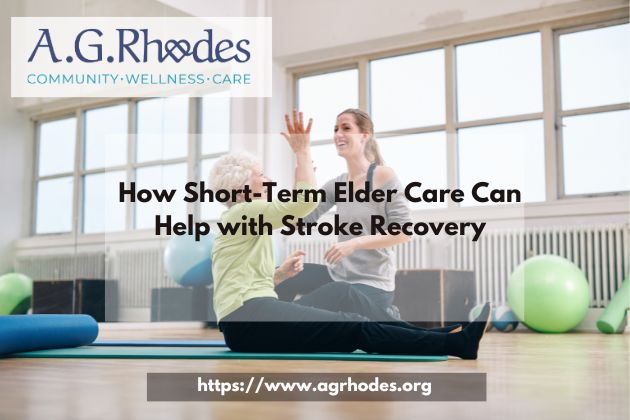 In the journey of stroke recovery, short-term elder care can be a vital and transformative aspect. Stroke, a sudden and often debilitating medical event, affects millions of people every year. The road to recovery can be challenging, and the right support system can make all the difference. In this article, we will explore the role of short-term elder care in helping individuals recover from a stroke. Let’s delve into this critical aspect of post-stroke rehabilitation.
In the journey of stroke recovery, short-term elder care can be a vital and transformative aspect. Stroke, a sudden and often debilitating medical event, affects millions of people every year. The road to recovery can be challenging, and the right support system can make all the difference. In this article, we will explore the role of short-term elder care in helping individuals recover from a stroke. Let’s delve into this critical aspect of post-stroke rehabilitation.
Understanding Stroke Recovery
What is Stroke?
A stroke occurs when the blood supply to the brain is disrupted, leading to a lack of oxygen and nutrients, resulting in damage to brain cells. This can lead to various physical and cognitive impairments.
The Importance of Post-Stroke Rehabilitation
Stroke recovery is a complex and ongoing process that involves physical therapy, speech therapy, and emotional support. Post-stroke rehabilitation plays a crucial role in helping patients regain their independence and quality of life.
Short-Term Elder Care: A Supportive Solution
The Role of Short-Term Elder Care
Short-term elder care refers to professional caregiving services provided for a limited duration. It is tailored to meet the specific needs of the elderly, making it an ideal solution for stroke recovery.
Personalized Care Plans
One of the key advantages of short-term elder care is the development of personalized care plans. These plans are created with the patient’s unique needs and goals in mind, ensuring a holistic approach to recovery.
Assistance with Activities of Daily Living (ADLs)
Short-term elder care providers assist stroke survivors with activities of daily living, such as bathing, dressing, and meal preparation. This support allows patients to focus on their rehabilitation without the stress of daily chores.
Emotional Support
Stroke recovery can be emotionally challenging. Short-term elder care professionals offer companionship and emotional support, reducing feelings of isolation and depression.
The Perplexity of Stroke Recovery
The Complex Nature of Stroke
Stroke recovery varies from person to person. It can involve physical therapy, speech therapy, occupational therapy, and cognitive rehabilitation, depending on the extent of the damage.
Addressing Burstiness
The burstiness of stroke recovery refers to the unpredictable nature of progress. Short-term elder care providers are trained to adapt to the changing needs of stroke survivors, offering flexibility in care.
The Benefits of Short-Term Elder Care
Promoting Independence
Short-term elder care focuses on enhancing the independence of stroke survivors. This includes mobility training, helping patients regain their ability to perform daily tasks on their own.
Tailored Rehabilitation
The care provided is specifically designed to meet the unique requirements of each patient. This ensures that the rehabilitation process is as effective as possible.
Reduced Hospitalization
Short-term elder care can often prevent rehospitalization, as it ensures that stroke survivors receive the necessary care and support in the comfort of their homes.
Faster Recovery
Studies have shown that individuals who receive short-term elder care tend to recover faster and have better long-term outcomes.
Conclusion
Short-term elder care is a valuable and indispensable resource in the journey of stroke recovery. Its personalized care plans, assistance with daily activities, and emotional support make it a crucial component of the rehabilitation process. By addressing the perplexity and burstiness of stroke recovery, helps stroke survivors regain their independence, improves their quality of life, and fosters faster recovery.

